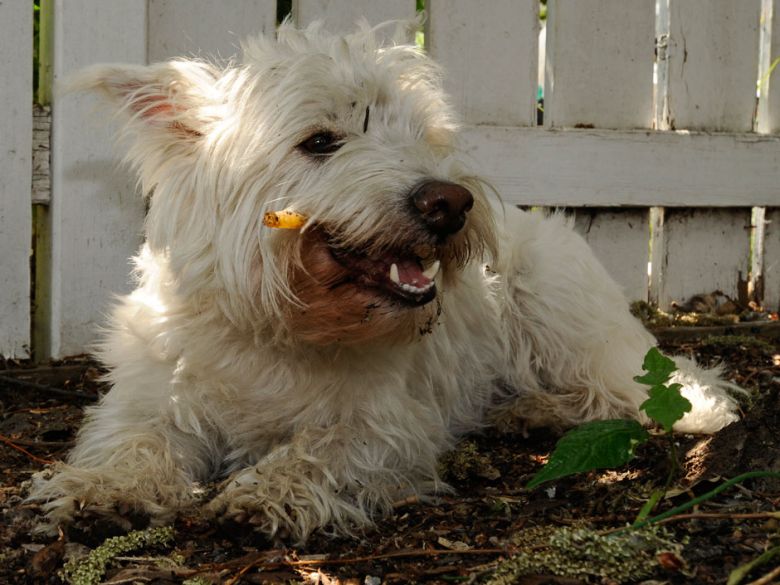Connect with a verified veterinarian in minutes. Licensed vets are available 24/7 to answer your questions. No need to worry about your furry family member.
Rats can be a huge problem in a home. They can infest the home and build nests, getting into food, chew up wood, and more. Sometimes, a homeowner decides to use commercially prepared rat poison. However, if the poison isn’t carefully and properly applied, it’s easy for other animals to find the poison. That means cats, wildlife, and dogs could eat and become sick from rat poison.
Has your dog eaten rat poison? Are you worried the rat poison will make your dog sick? If so, you’ve come to the right place. We understand that it’s scary when your dog eats something like this.
We’ve put together information about rat poison and what you need to do to help your dog if he’s eaten rat poison. Let’s get started.
What is Rat Poison?
There are several different types of commercially prepared rat poison available. Each type has a different toxicity dose for dogs, and the symptoms may also vary.
Many rodent poisons include a grain or sugar base, which is what attracts rats, dogs, and other animals to eat the poison. Rat poison can be found in different forms, including pellets, granules, blocks, or liquids. The poison can be any color; however, the most common colors are blue, teal, pink, and green.
It’s not possible to tell what type of poison the dog has eaten. That’s because the colors, shapes, and forms are not indicative of the type of poison used. You’ll need to read the packaging to find the chemicals that are in any specific rat poison.
Rat Poison & Dogs
There’s no question that rat poison is toxic to dogs. The substances used in these products are meant to kill rats and can have the same effect on dogs.
Rat poison is made to seriously damage the rat’s internal organs and its neurological system. When the toxin spreads through the rat’s system, it causes internal bleeding and neurological problems such as tremors, heart problems, and more.

Review symptoms, medications & behavior to keep your pets healthy with a Vet Online in just minutes.
Ask a Vet Live NowSymptoms of Rat Poisoning in Dogs
You may notice these symptoms if your dog has eaten rat poison:
- Internal bleeding
- Renal failure
- Heart abnormalities
- Vomiting
- Neurological issues
If you notice any of these symptoms in your dog, call the vet immediately. This is a life-threatening emergency. Do not wait to see if your dog’s symptoms improve or worsen. He must see the vet right now.
Treatment of Rat Poisoning in Dogs
If your dog has recently eaten the poison, the vet may induce vomiting and administer activated charcoal. These methods are used to remove the toxins from the dog’s body. The vet may also run tests such as blood work to see if signs of toxicity show up in your dog’s blood. The vet will also treat other symptoms as they appear.
In most cases, your dog will need to be hospitalized for tests and treatments.
The prognosis depends on the type of rat poison your dog has eaten and how much of the poison he ate, and how much time has passed since he ate the rat poison.
The prognosis is not good if the dog is already showing signs of severe toxicity, including neurological issues, kidney and heart problems. In this case, the dog has a high probability of dying.
As with other poisons, it’s always best to keep rat poison out of your dog’s reach or where he could find it and eat it. In addition, if your dog likes to go into your neighbors’ yards, it’s best to stop this behavior now. It’s possible they could put out rat poison, and your dog would find it. So, always keep your dog on a leash and monitor what he’s sniffing or eating.
Prevention is always the best medicine when it comes to dogs and poisons.
Connect with a verified veterinarian in minutes. Licensed vets are available 24/7 to answer your questions. No need to worry about your furry family member.

Tom
Tom has always loved to write since he was little - he wanted to be either a writer or a veterinary doctor, but he ended up being a professional writer while most of his works are based on animals. He was born in San Francisco but later moved to Texas to continue his job as a writer. He graduated from the University of San Francisco where he studied biotechnology. He is happily married and a soon to be father!
Review symptoms, medications & behavior to keep your pets healthy with a Vet Online in just minutes.
Ask a Vet Live Now





